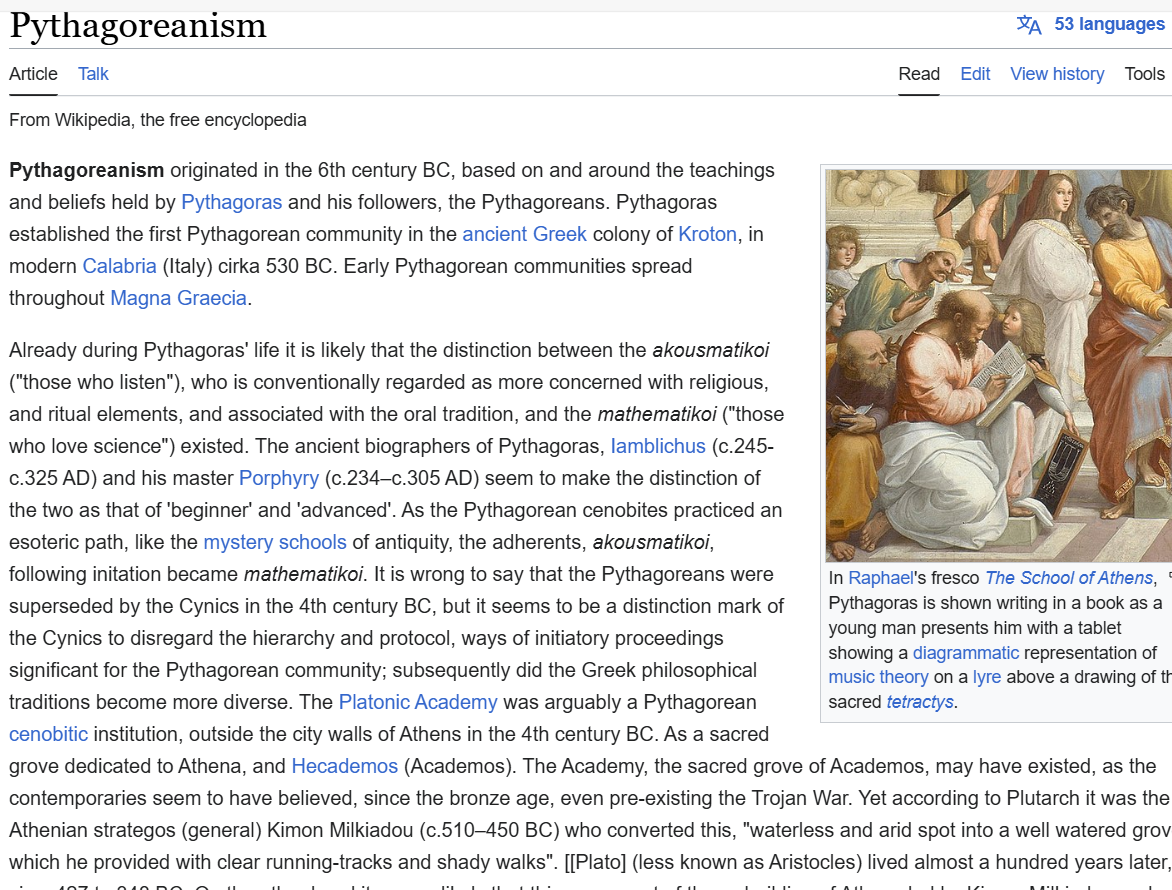PYTHAGOREANISM

Pythagoreanism originated in the 6th century BC, based on and around the teachings and beliefs held by Pythagoras and his followers, the Pythagoreans. Pythagoras established the first Pythagorean community in the ancient Greek colony of Kroton (modern-day Crotone, Italy). Early Pythagorean communities spread throughout Magna Graecia.
Pythagoras’ death and disputes about his teachings led to the development of two philosophical traditions within Pythagoreanism. The akousmatikoi were superseded in the 4th century BC as a significant mendicant school of philosophy by the Cynics. The mathēmatikoi philosophers were absorbed into the Platonic school in the 4th century BC.
Following political instability in Magna Graecia, some Pythagorean philosophers fled to mainland Greece while others regrouped in Rhegium. By about 400 BC the majority of Pythagorean philosophers had left Italy. Pythagorean ideas exercised a marked influence on Plato and through him, on all of Western philosophy. Many of the surviving sources on Pythagoras originate with Aristotle and the philosophers of the Peripatetic school.
As a philosophic tradition, Pythagoreanism was revived in the 1st century BC, giving rise to Neopythagoreanism. The worship of Pythagoras continued in Italy and as a religious community Pythagoreans appear to have survived as part of, or deeply